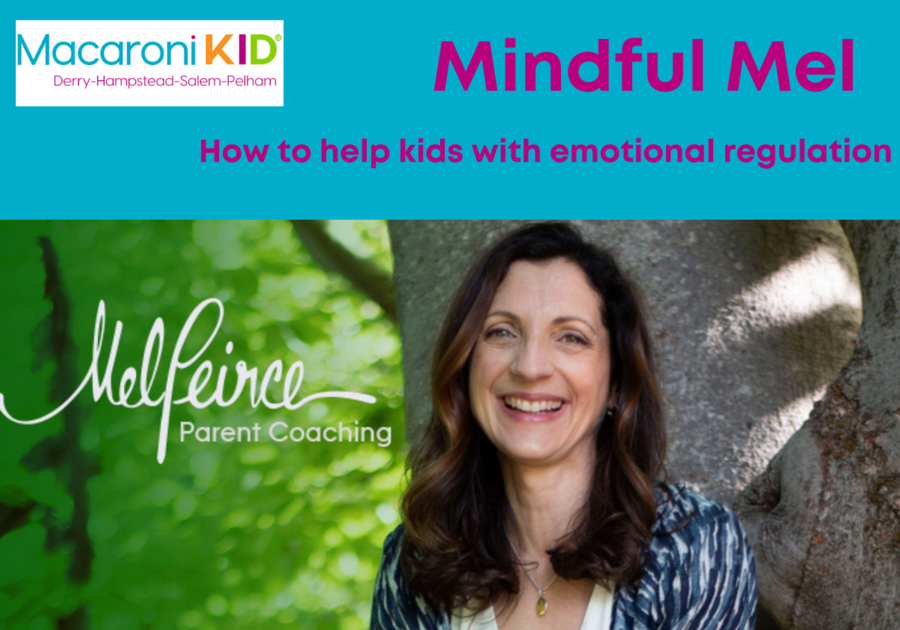We are hearing the terms “emotional regulation”, and “co-regulation” more often in child development, parenting circles, and from pediatricians — but do you really know what they mean and why they’re important?
According to Psychology Today, emotional regulation is the ability to exert control over one’s own emotional state. This can include rethinking a challenging situation to reduce anger or anxiety, hiding visible signs of sadness or fear, or focusing on reasons to feel happy or calm.
Humans are not born with emotional regulation skills. As infants and children, we don’t have control over our emotions and nervous system and we cannot self-regulate. Children rely on their parents, caregivers, and other adults in their lives to help them regulate their heightened emotional states through co-regulation.
Co-regulation is when we, the parent or caregiver, use our mature nervous system and emotional regulation skills to guide and support our child’s immature nervous system to help them calm down until they learn how to get control over their emotions on their own.
How do kids learn to self-regulate? Through lots and lots of practice going from dysregulated to regulated. Kids need to lose control of their emotions (dysregulate) and have a caregiver help calm them down (co-regulate), over and over again until they are able to do it by themselves.
What does that look like?
A parent picks up a crying baby, holds them chest to chest, and calmly rocks them while rubbing their back to help the infant settle down.
A toddler has a meltdown at the breakfast table, and the parent calmly sits next to them until the toddler calms down.
A child in elementary school is playing after school at the playground and throws a fit about leaving. The parent acknowledges the disappointment while calmly steering the child to the car.
A teenager rants and raves about not being able to go to a party with friends. The parent remains calm while reminding the teen of the rules and consequences, as well as the parent’s responsibility to keep the teen safe.
The common factor in each example and the key to co-regulation — is the parent remaining calm.
Emotions are contagious, and whoever is most connected to their emotions will have the most influence. Have you ever been in a good mood and then have someone in a bad mood bring you down? One person in a bad mood can affect the energy and bring down a whole house if you’re not careful.
Unfortunately, when our kids are having a hard time self-regulating, their feelings are BIG and they are deeply connected to them, which can give them the most influence. This is why parents can find their frustration and anxiety levels rising in response to their children’s heightened emotions.
So what do we do as parents to remain calm so we can help our kids co-regulate?
1 - First and foremost, give yourself some grace. Expecting that you will be able to remain calm in every situation is unrealistic, and you will put yourself in a position where you will never measure up.
If you don’t have grace and space for yourself when you are frustrated, you’re not likely to have grace and space for your kids and their heightened emotions either.
2 - Make sure that you are filling your own cup. If you are consumed with taking care of everyone else and their needs, but you are not taking care of your own, you will get very resentful — and it’s difficult to remain calm when you are filled with resentment.
3 - Add some additional tools to your parenting toolbox to help your kids navigate feelings. As a parent, it helps to understand how your child’s brain is developing and what is driving their feelings. I explain this in my How To Parent Through BIG Feelings workshop. If you didn’t catch it live, you can catch the replay here.
Not all adults learned how to self-regulate as a child, and some parents need help finding their own calm first so they are in a position to help their kids co-regulate. If you’ve been struggling with co-regulation, please know that you are not alone and know that help and support are available. Schedule a free call here, to learn more about all of the different resources available and how I can help.
------------
SUBSCRIBE FOR MORE!
Love this article? Want more like it and to get the latest on local Greater Derry area events? Subscribe HERE to receive our free, weekly Macaroni KID Derry newsletter in your inbox every Thursday morning. Our goal is to bring you all of the best family-friendly events, activities, and businesses in our area. We proudly serve the towns of Derry, Londonderry, Hampstead, East Hampstead, Windham, Salem, Chester, Candia, Atkinson, Auburn, Sandown, Pelham and Plaistow! Contact us anytime (karynm@macaronikid.com) with your ideas, event listings, and suggestions. Have a small business and want to reach thousands of local families? Advertise with us!



